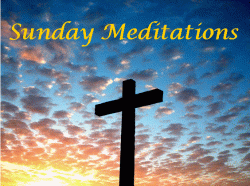Al Mohler, president of Southern Baptist Theological Seminary in Louisville, KY, recently was quoted as saying the following in an interview about homosexuality.
“We’ve lied about the nature of homosexuality and have practiced what can only be described as a form of homophobia… We’ve used the “˜choice’ language when it is clear that sexual orientation is a deep inner struggle and not merely a matter of choice.”
He was then asked to defend this statement in the recent SBC Annual Convention. The video of the exchange with SBC pastor and blogger, Peter Lumpkins is here.
I happen to agree with Mohler, especially as he clarified his statements. The Associated Baptist Press summarized Mohler’s response to the question by Lumpkins:
Mohler said at the convention “there is no way anyone in fair mindedness can be confused about what I believe about homosexuality,” because he has written more than 200 articles about it, but that “the reality is that we as Christian churches have not done well on this issue.”
“Evangelicals, thankfully, have failed to take the liberal trajectory of lying about homosexuality and its sinfulness,” Mohler said. “We know that the Bible clearly declares — not only in isolated verses but in the totality of its comprehensive presentation — the fact that homosexuality not only is not God’s best for us, as some try to say, but it is sin.”
“But we as evangelicals have a very sad history in dealing with this issue,” he continued. “We have told not the truth, but we have told about half the truth. We’ve told the biblical truth, and that’s important, but we haven’t applied it in the biblical way.”
“We have said to people that homosexuality is just a choice,” Mohler said. “It’s clear that it’s more than a choice. That doesn’t mean it’s any less sinful, but it does mean it’s not something people can just turn on and turn off. We are not a gospel people unless we understand that only the gospel of the Lord Jesus Christ gives a homosexual person any hope of release from homosexuality.”
Mohler said churches have not done their job until “there are those who have been trapped in that sin sitting among us.”
Now the use of “homophobia” is a sticky subject, for sure. But I do agree that Mohler is right. And in this, I echo the sentiments of blogger Elijah Friedeman, and want to quote him at some length (HT: The Aquila Report).
I realize that much of what Mohler said flies in the face of conservative Christianity. No one likes to be called homophobic. And religious people especially don’t like to be called to repentance. But Albert Mohler is absolutely right.
What did Albert Mohler say that was so outrageous? Was it the part about Jesus being the only Savior from sin? Was it the claim that our sinful nature goes beyond a simple choice?Any orthodox Christian should affirm salvation from our sin through Jesus and that we can’t simply decide to turn off our sinful nature.
I know that many conservative Christians want to turn homosexuality into an easy choice. But it doesn’t work like that. Don’t get me wrong. Everyone has a choice about whether or not to engage in sexual acts outside of marriage. But not everyone has a say about whom they’re sexually attracted to.
There are a lot of people in the world with addictive personalities – they’re addicted easily – these people don’t have to give in to their addictive temptations, but they have a problem that can’t be solved with a choice – a problem that only Jesus can fix.
Homosexuality is much the same. Homosexuals have deep-rooted attraction to the same gender that they can’t solve with a choice. Mohler stated that homosexuality, like any other sin, requires a Savior. When did that become a radical sentiment? Last I checked, it’s a biblical concept.
But I have a feeling that most people disagreed with Mohler, because he labeled Southern Baptists as homophobic.
I can’t speak to homophobia in Southern Baptist churches. I’ll have to trust Mohler on that front (apparently he explained exactly how Southern Baptists are homophobic, but I can’t find the transcript). But I know from what I’ve seen, read, and heard, a form of homophobia is very present in many conservative churches.
For some reason there is an irrational fear of and extreme aversion to homosexuals in a lot of churches. We may not come right out and say that we think homosexuals are nasty creatures, but if you read between the lines, it’s pretty easy to pick up on. This is homophobia.
We should not elevate homosexuality above other sins. If we condemn homosexuality as sin, we must also condemn other forms of sexual immorality as sin.
I’ve seen many religious people castigate homosexuals, but turn a blind eye to the other, more pervasive, forms of sins in the church. I’m more concerned about the prevalence of divorce in churches than I am about a few cases of homosexuals trying to silence their critics.
What do you think? Is Mohler totally off base? As for me, I’m standing with him on this one.
For more on this question, see other articles on homosexuality I’ve posted here on my blog. You’ll find reviews of two helpful books I’ve read on this topic.


